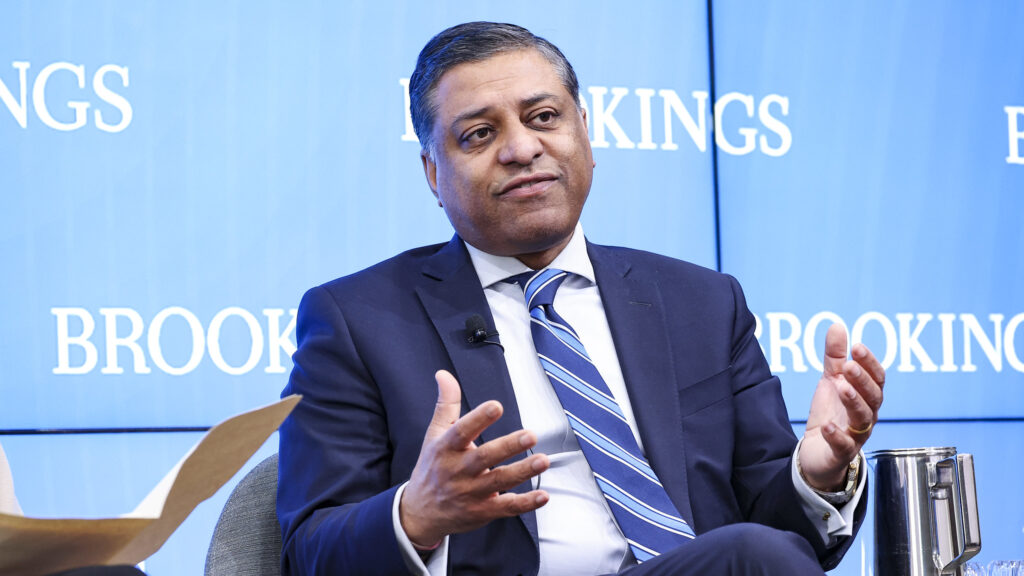The Biden administration on Thursday issued a call to action for the nation’s employers to hire, train, and retain people in recovery from addiction.
Recovery-Ready Workplace, as the new program is known, includes a new toolkit for employers and promotes a model state law that would create incentives for businesses to hire people in recovery and become certified as “recovery-friendly” workplaces.
advertisement
More broadly, it takes aim at the discrimination people with addiction often face when seeking work. The White House also cast the initiative as a win-win — beyond helping people in recovery achieve stability, it could help businesses’ bottom lines.
“There are more than 20 million Americans living in recovery today,” Rahul Gupta, the director of the White House Office of National Drug Control Policy, said in a press briefing. “We fully expect more people to enter recovery, and that is why this is so important to do right now.”
He continued: “Obtaining and maintaining a job is a critical part of any recovery journey. A job offers stability for tens of millions of Americans in recovery, or those struggling with substance use disorder, and their families and communities.”
advertisement
The new program reflects a growing understanding of substance use, addiction, and recovery not as conscious choices but as complex processes influenced by countless factors — including, among others, financial stability and day-to-day routine.
It also underscores the immense toll that the overdose crisis continues to exact on the U.S. economy. In addition to claiming tens of thousands of American lives each year, a 2021 Centers for Disease Control and Prevention study estimated that opioid use and opioid overdoses, specifically, cost the U.S. economy over $1 trillion in 2017, a number that is likely far larger today.
The initiative does not include substantial, binding commitments from the federal government. Given that it largely relies on states and individual employers to act, it is unclear whether it will have a significant impact. Its potential, however, is immense: Roughly 46 million Americans met the criteria for a substance use disorder as of 2021, according to the White House. Roughly 27 million of those people were employed.
Others, however, face discrimination and other roadblocks in seeking employment. Even those who do hold jobs often hide their past substance use from their supervisors or colleagues.
The new initiative would encourage employers to make clear that those who openly acknowledge their recovery won’t face discrimination, and for those companies to create a pro-recovery work culture that includes peer support groups and time off for recovery-specific activities.
Doing so, Gupta argued, wouldn’t just help workers in recovery — it would help businesses retain talent and save an average of $8,500 annually, according to one study, by reducing staff turnover and employee health care costs associated with ongoing substance use, like hospitalization, heart complications, or contracting infectious diseases like HIV or hepatitis C.
The White House announcement also included the de facto endorsement of a model state law that would create tax credits and stipends for employers that hire people in recovery, and establish other state-level systems for funding programs that help people in recovery get and keep jobs.
As part of the announcement, Chris Sununu, New Hampshire’s Republican governor, also unveiled a new nonprofit known as the National Recovery-Ready Workplace Institute, aimed at helping both states and employers develop recovery-friendly policies.
Google, too, announced “enhancements” to its existing policies on fostering a recovery-ready workforce, though a White House press release did not include additional detail.
“We know that people in recovery are talented, they’re hardworking, and they deserve to have the same opportunities to learn and grow and have an impact with everybody else,” said Karen DeSalvo, Google’s chief health officer.
STAT’s coverage of chronic health issues is supported by a grant from Bloomberg Philanthropies. Our financial supporters are not involved in any decisions about our journalism.

